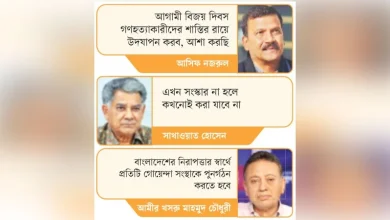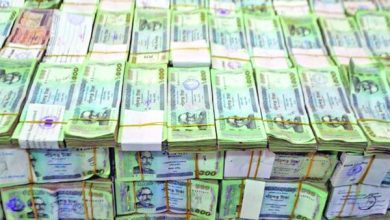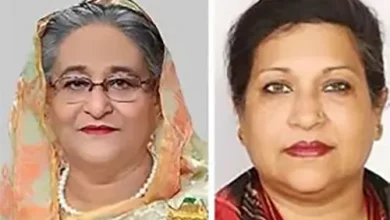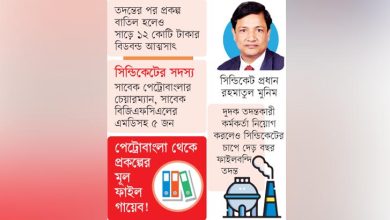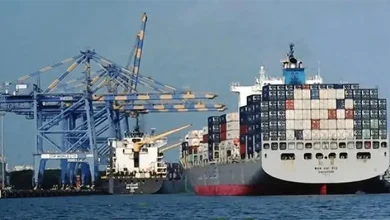Dhaka’s drainage master plan stalled for 8 years, new plans underway
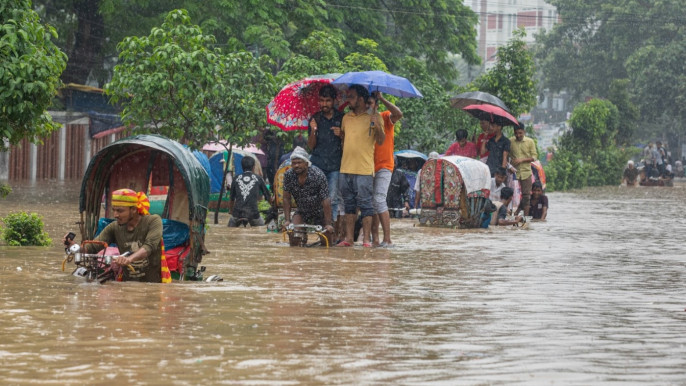
Since Dhaka Wasa transferred 26 canals and drains to Dhaka’s two city corporations on 31 December 2020, neither has taken action based on the drainage master plan
Dhaka’s two city corporations are working on a new drainage master plan, deeming the current one ineffective. The existing “Stormwater Drainage Master Plan for Dhaka City,” created by Dhaka Wasa in 2016, has seen no implementation over the past eight years.
Since Dhaka Wasa transferred 26 canals and drains to Dhaka’s two city corporations on 31 December 2020, neither has taken action based on the drainage master plan. Following Friday’s (12 July) 130 mm rainfall, citizens experienced severe waterlogging, highlighting the immediate impact of this transfer.
Urban planners say, “Dhaka’s waterlogging cannot be solved by simply making plans. The plans must be implemented. Just making plans wastes state money. Urgent action is needed for a long-term solution.”
Dhaka South City Corporation says it has begun efforts to mitigate waterlogging and develop canals and drains in line with a new master plan, but results will take time to show. Meanwhile, Dhaka North City Corporation has proposed updating and transforming the 2016 master plan prepared by Dhaka Wasa, seeking approval from the Planning Commission.
Dhaka Wasa’s Deputy Managing Director for Operations and Management, Engr AKM Shahid Uddin, told TBS, “We handed over the management of canals and drains to the city corporations because we failed.
“But the city corporations did not adhere to Dhaka Wasa’s master plan during their development work. They have installed 2-3 lines on all Dhaka roads but have not resolved the waterlogging issue. If they choose not to follow the master plan, that’s their decision.”
He continued, “We provided the master plan to both city corporations, but they did not prioritise it. Now that drainage management is under their control, they claim the master plan is ineffective due to a lack of support.
“The city corporations have even struggled to operationalise pumps. A master plan is designed for 15-20 years and should be revised every 5 years based on current conditions.”
Bangladesh Institute of Planners President Adil Mohammed Khan told TBS, “We have severely damaged the city, making even light rain cause flooding. There’s now an opportunity to make meaningful progress by managing sustainable drainage in new Dhaka areas.
“We need a realistic plan to restore our lost blue network. Effective coordination among organisations is crucial, yet lacking. Community engagement is essential alongside efforts to tackle waterlogging.”
He added, “Without controlling further unplanned development, no number of master plans can save Dhaka.”
Dhaka North’s new project proposal
Dhaka North aims to implement the Integrated and Resilient Urban Infrastructure Preparatory Facility project with Tk81.29 crore in funding from the Asian Development Bank (ADB). The project awaits approval from the Planning Commission.
Dhaka North argues the need to update and transform the 2016 master plan by Wasa, citing challenges like rapid urbanisation, climate change, and frequent heavy rainfall.
According to Dhaka North, it is facing various challenges, including a limited road network, shrinking water bodies due to encroachment, severe waterlogging during storms, water pollution, inadequate solid waste management, and insufficient sanitation.
The proposed project focuses on Zones 2, 3, 6, and 10, covering 84 sq km and 26 wards with approximately 1.59 million buildings. These zones encompass densely populated, well-developed, and rapidly growing areas. The project will run from January 2025 to June 2026.
Faruque Hassan Md Al Masud, Dhaka North City’s Superintending Engineer for Drainage, told, “Following Dhaka Wasa’s master plan entirely isn’t feasible. To modernise Dhaka, we need an updated drainage system, incorporating relevant aspects from the original plan.”
He added, “Our focus will be on rainwater conservation, managing canal flows, and prioritising nature-based solutions.”
Meanwhile, Dhaka South expressed concerns about the sustainability of Dhaka’s drainage system amidst rapid urbanisation and climate change.
Mohammad Nasim Ahmed, chief waste management officer, told, “Adhering strictly to Wasa’s master plan isn’t viable due to current design disagreements. We’re developing the system by preserving canals and water bodies alongside ongoing city development.”
The “Stormwater Drainage Master Plan for Dhaka City” proposed approximately 250 projects aimed at upgrading the city’s stormwater drainage infrastructure.
The total estimated cost for these projects, designed to meet minimum drainage criteria by 2040, was around Tk16,000 core.
The master plan outlined three phases for project implementation — 2015-2020, 2020-2030, and 2030-2040. However, none of the projects scheduled for the first phase, spanning 2015-2020, were implemented.


